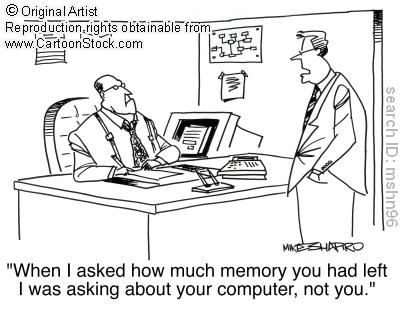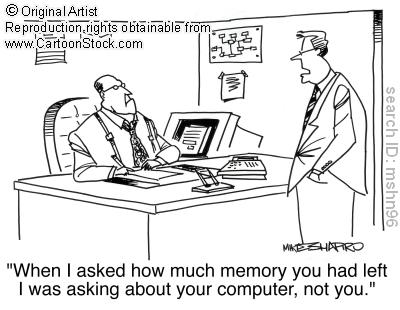#FinSci: Improving Financial Insight with Working Memory

4 min Read
If I told you that you can train your brain to be quicker, sharper, more insightful would you be interested? We’ve talked about how good listening skills can make you a better advisor, but strengthening your brain is a skill that is a bit harder to pinpoint. By learning about working memory, being conscious of it, and doing your part to improve your working memory (which DOES decrease with age!), then you can sharpen your brain, and become a better financial advisor, as well.
Step 1: Get familiar with working memory
If you’re going to improve your working memory, you ought to know what, exactly, working memory is… To Wikipedia!
Working memory has been defined as the system which actively holds information in the mind to do verbal and nonverbal tasks such as reasoning and comprehension, and to make it available for further information processing. Working memory tasks are those that require the goal-oriented active monitoring or manipulation of information or behaviors in the face of interfering processes and distractions.
This analogy from the New York Times Magazine’s feature, Can You Make Yourself Smarter?, might help, too:
What long-term memory is to crystallized intelligence, working memory is to fluid intelligence. Working memory is more than just the ability to remember a telephone number long enough to dial it; it’s the capacity to manipulate the information you’re holding in your head—to add or subtract those numbers, place them in reverse order or sort them from high to low.
Step 2: Be conscious of your working memory
The first step in strengthening your brain–which isn’t ripped from a major news source, Lifehacker article, or science magazine, but from my own experience–is to be conscious of whatever it is that you’re trying to do. For a long time, I struggled to remember names. I would meet a person and forget their name the moment the letters left their lips. It was a problem that made me look like a jerk, so I tried to fix it. What worked for me is simply recognizing that you want to remember this person’s name, no matter who the person is. I find that repeating the person’s name after they give it to me, using it aloud in our first few interactions, and actively trying to keep the name in my working memory works.
But working memory is also useful for rearranging and manipulating information in your head, which could prove to be very useful for a financial advisor. Imagine you’re having a conversation with a potential client, or even catching up with a current one: our brains spew information in strange orders and patterns. You’ll often recognize important bits, but they’re often buried in nonsense and sometimes it’s tough for us to connect the dots and keep everything straight in our heads. An advisor with Jedi-working-memory-mind-tricks would have the capacity to log these details and organize them in real-time, while being active current in the conversation.
Step 3: Gaming your way to better memory?
The New York Magazine piece highlights dual N-back games, which require you “to remember the location of a symbol or the sound of a particular letter presented just before (1-back), the time before last (2-back), the time before that (3-back) and so on.” You can play a version of this game for free at Soak Your Head. But there are also more practical activities and games that help strengthen your working memory, fresh from–you guessed it–Lifehacker! Some of these are:
Sudoku puzzles–they’re right in the paper!
Practicing simple math every day–remember time-tables? Do some of those!
Writing instead of typing–we’ve talked about the benefits of this, in slightly different context, before.
Act like you’re teaching–you could teach a young person about finance!
Exercise and eat well–we already know that sitting is killing you!



